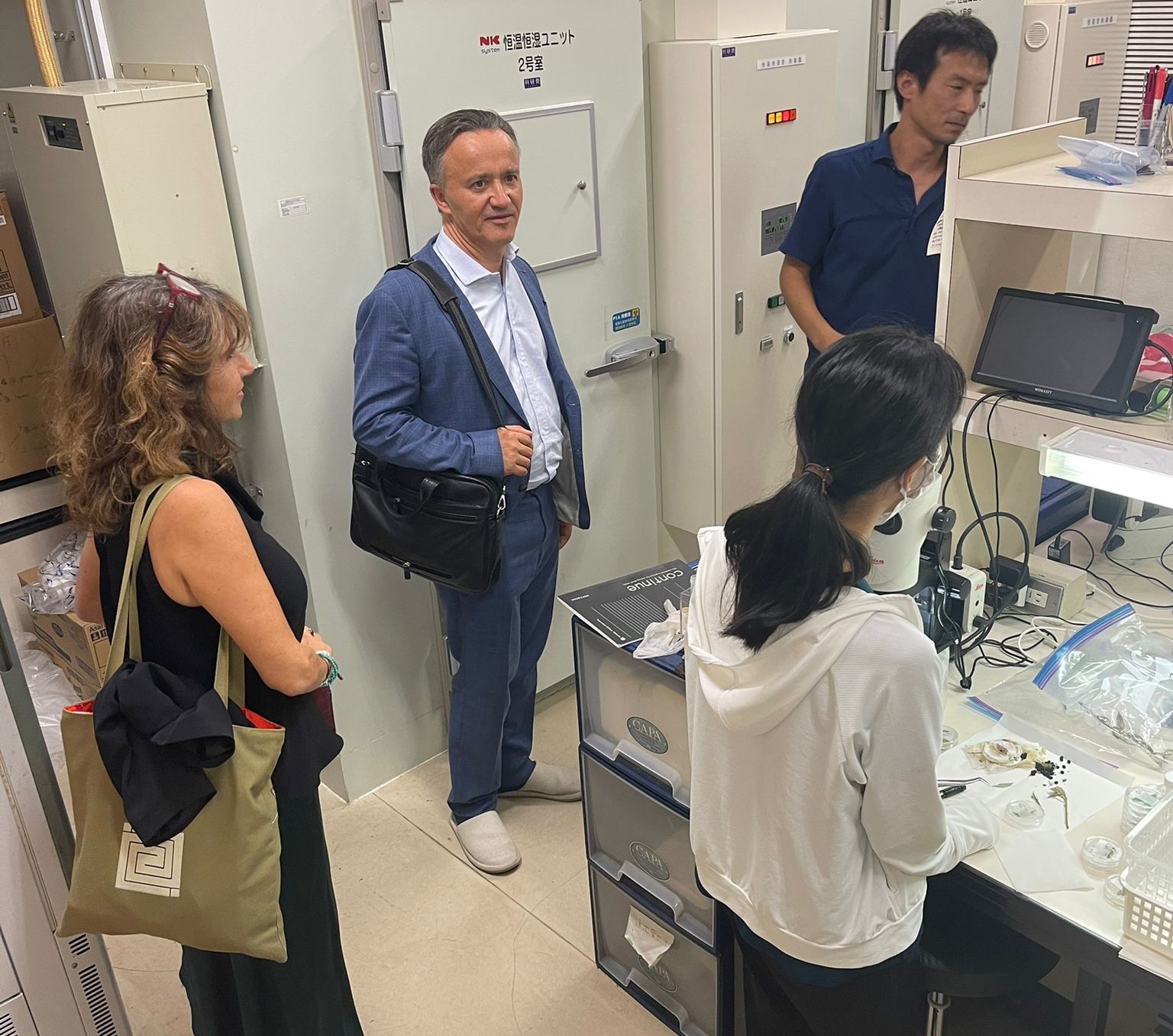Reading time 3 min
INRAE strengthens partnerships in Japan during the Science and Technology in Society Forum in Kyoto
Published on 10 October 2023
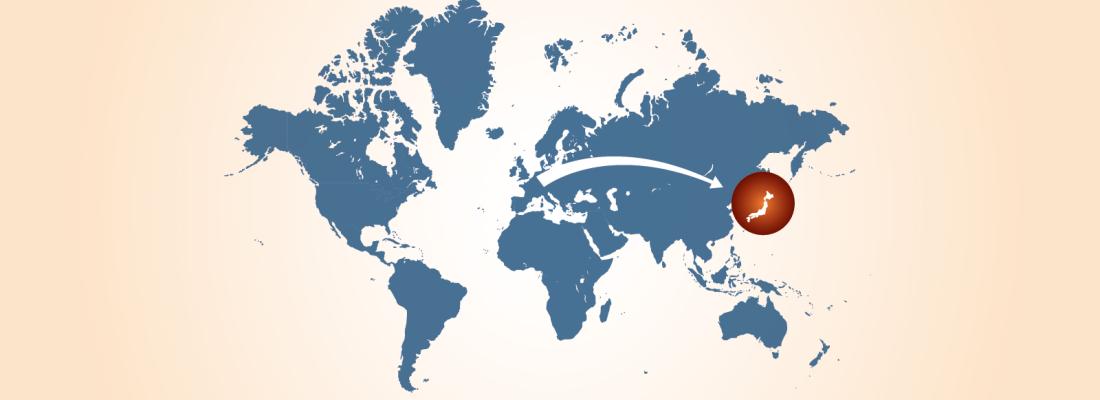
20th annual global meeting for science and technology
The Twentieth Annual Meeting of the Science and Technology in Society (STS) Forum brought the world of science to Kyoto, Japan, from 1 to 3 October 2023. Established in 2004, the annual STS Forum convenes researchers and global leaders to discuss current world issues in science and technology.
Philippe Mauguin and Jean-François Soussana participated in the Forum and discussed their views on major issues for the transition of agrifood systems in the context of climate change and food and water security.
Jean-François Soussana spoke at a session dedicated to climate change: “There is an urgent need to develop agricultural resilience to climate change and to the water scarcity it causes. Integrated responses need large-scale changes in agrifood systems and in soil restoration for degraded ecosystems.”
Philippe Mauguin also participated in the Twelfth Global Summit of Research Institute Leaders. There, he highlighted the risks and opportunities of generative artificial intelligence in agriculture during a panel co-hosted by RIKEN and the National Research Council Canada on the challenges this disruptive new technology poses for research stakeholders.
“As we face food security, climate change and biodiversity challenges, international research must leverage agronomy, plant health, genetics and digital technology for a successful agroecological transition. Generative artificial intelligence can combine very diverse fields of knowledge and massive data sets into predictive models. However, data quality must be ensured and algorithms must be made more transparent and open in order to move towards a “Science GPT” that is openly accessible and managed by the international scientific community.”
Philippe Mauguin at the Global Summit of Research Institute Leaders
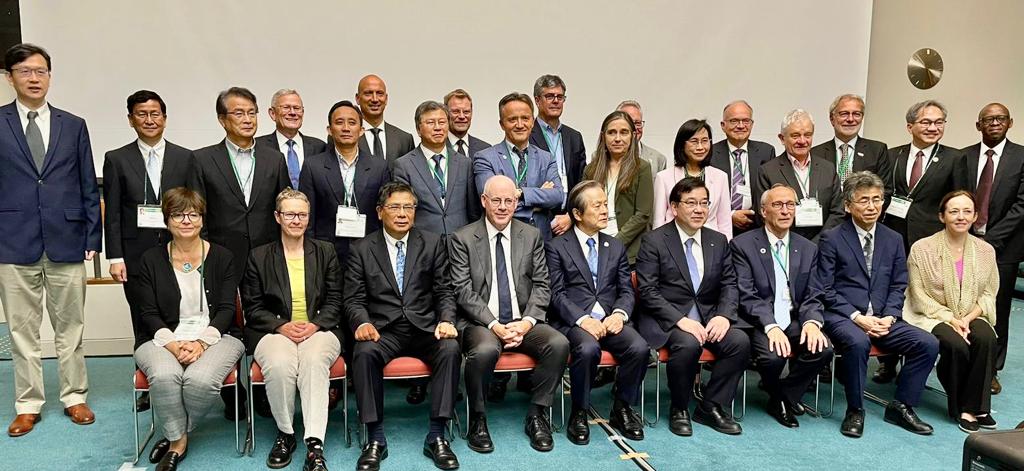
INRAE–NARO partnership turns towards robotics and plant phenotyping to meet global food security challenges
In the sidelines of the STS Forum, a bilateral meeting was held between the presidents of INRAE and Japan’s National Agriculture and Food Research Organization (NARO) to discuss future research agreements.
One agreement looks at the construction of an International Associated Laboratory (LIA) in robotics. The other agreement is to establish an International Research Network (2RI), RhizoNet, on phytogenetic resources and advanced phenotyping technologies to contribute to food security and carbon neutrality.
RhizoNet International Research Network
RhizoNet will draw on disciplines across the fields of study of the INRAE Agroecosystem and Plant Biology and Breeding (BAP) divisions, NARO, and academic partners in the Netherlands and Germany. It is a high-level scientific collaboration among research institutes that have made significant advances in root system phenotyping and plant breeding.
The network’s guiding premise is that future agricultural strategies – including those to adapt to and mitigate climate change – must take account of the morphological and physiological characteristics of root systems, their plasticity and the genetic make-up of the processes that regulate them. Future strategies will enable improved resource capture in extreme conditions and increased soil carbon storage while meeting global food security needs.
The Joint Linkage Call agreement between INRAE and NARO contributed significantly to the development of RhizoNet, as project financing made ongoing research collaboration possible. The ultimate aim of the network is to lay the groundwork for a future joint research programme on low-carbon agriculture that will look at plant root systems and plant breeding using high-throughput plant phenotyping to develop climate change adaptations.
INRAE and NARO have been collaborating for many years, with the two organizations having signed a Joint Linkage Call agreement for a scientific mobility programme in 2020. They jointly coordinate the PISI-Net 2RI that was established in 2023 to study the use of biological methods to protect against insect pests. PISI-Net brings together four INRAE laboratories and two laboratories from the National Centre for Scientific Research (CNRS) in France along with five laboratories in Japan from NARO, the University of Toyama, Kyoto Prefectural University and Saga University. The network has facilitated several joint research projects, including on controlling vector-borne plant pathogens and using symbionts to fight agricultural insect pests.
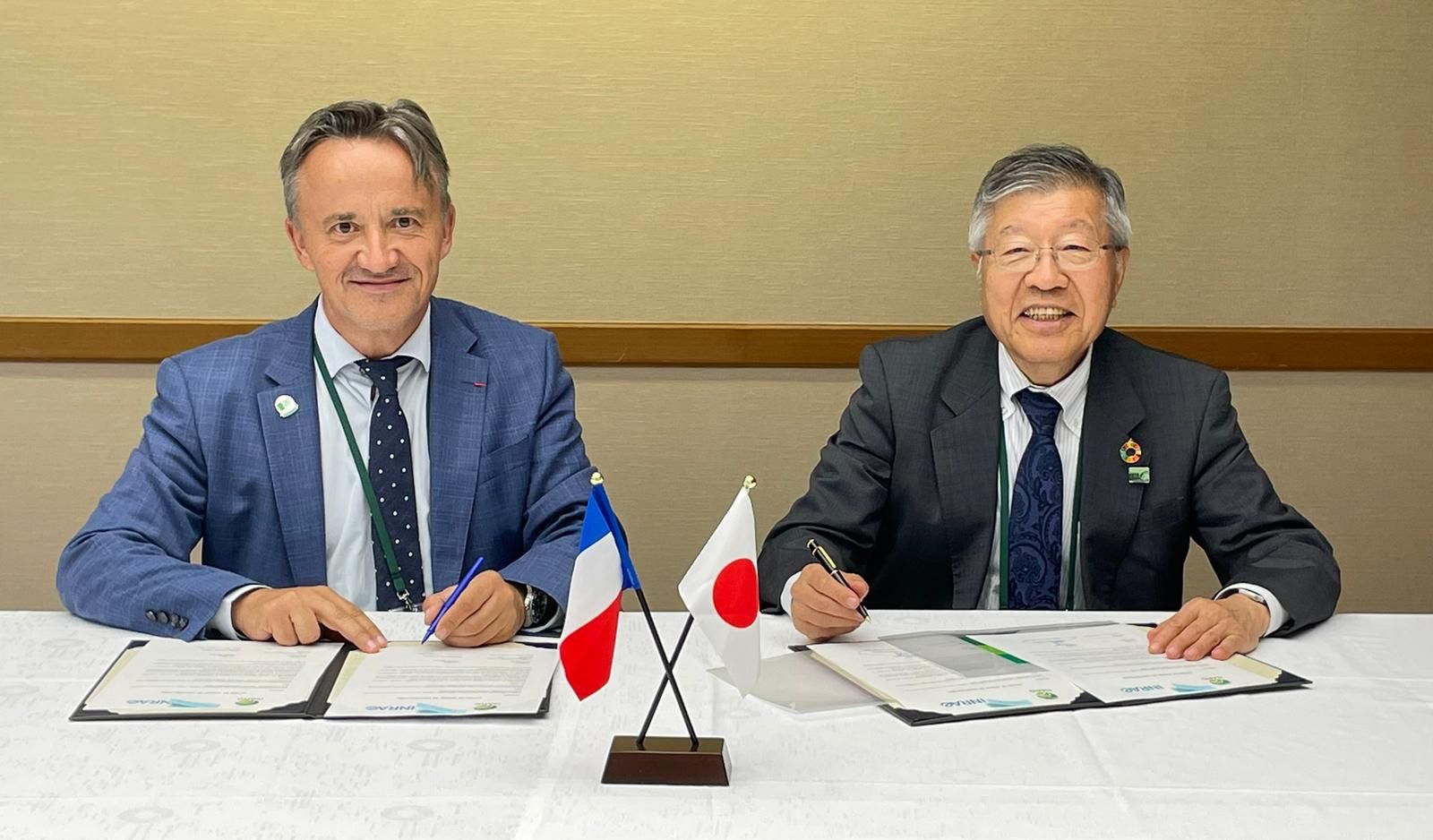
Learn more about INRAE–NARO cooperation
Highlighting dynamic and successful cooperation experiences
The visit was also an opportunity for the INRAE delegation to meet its research partners in Japan through a science workshop organized by the Embassy of France in Japan that brought together participants from NARO, the University of Tokyo and the University of Tsukuba. One of the projects showcased at the workshop was the Fruit Quality under a Changing Environment (FREQUENCE) LIA between INRAE and the University of Tsukuba, which was launched in 2019 together with the University of Bordeaux. Through the LIA, students have the ability to receive a jointly issued international master’s degree, with INRAE researchers involved in teaching.

Learn more LIA FREQUENCE
The international associated laboratory for FRuit QUality under a Changing Environment – FreQUenCE – studies the regulations and mechanisms involved in the control of fruit yields and fruit morphogenesis and composition.
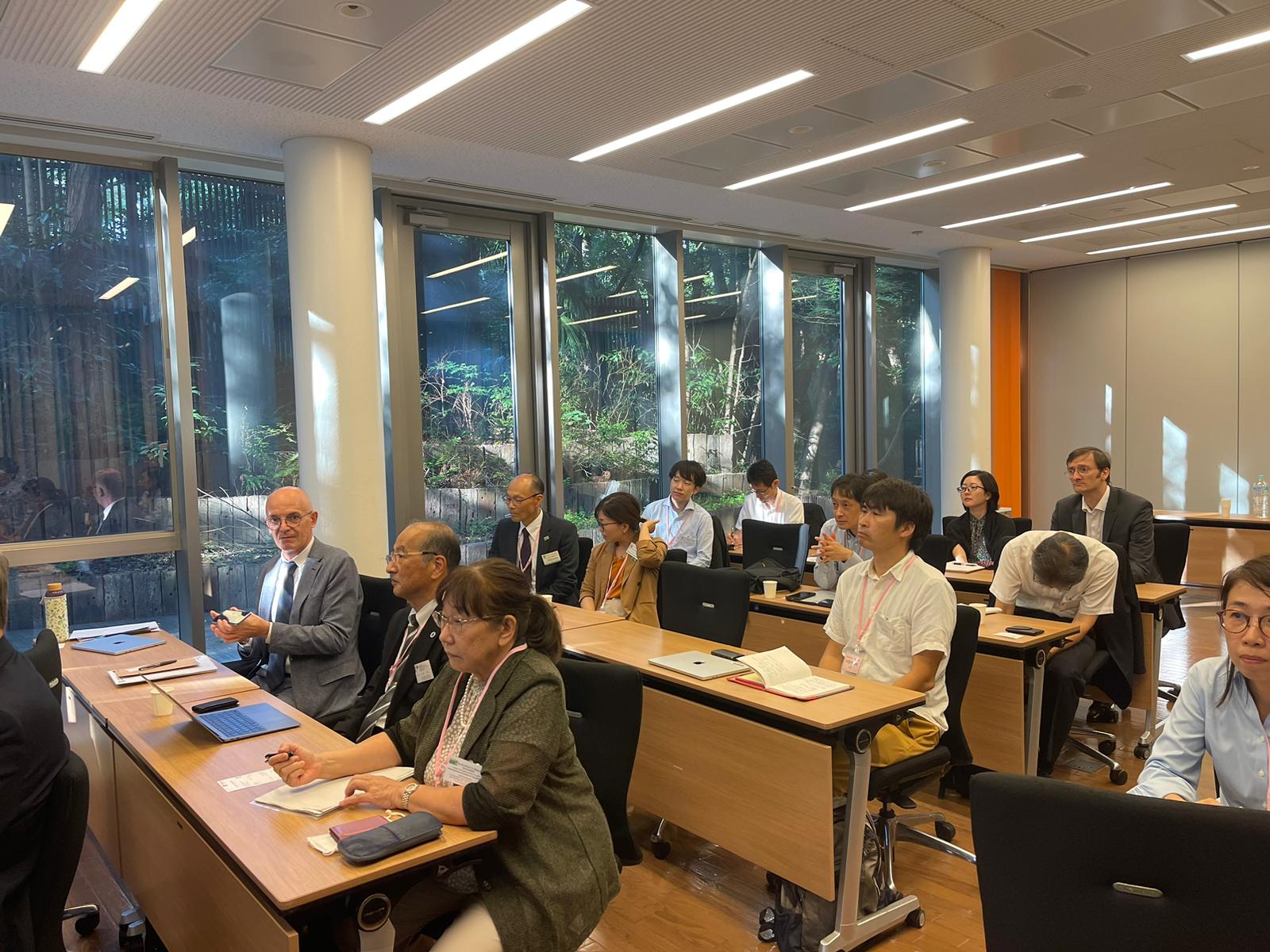
New collaboration opportunities with Japan’s research community
Meetings were held with a number of leading Japanese institutions, including RIKEN, one of Japan’s major research institutes for basic and applied science, and Kyoto University, one of the country’s top universities along with the University of Tokyo. The meetings lay the groundwork for future framework agreements and increased cooperation in shared research areas.
